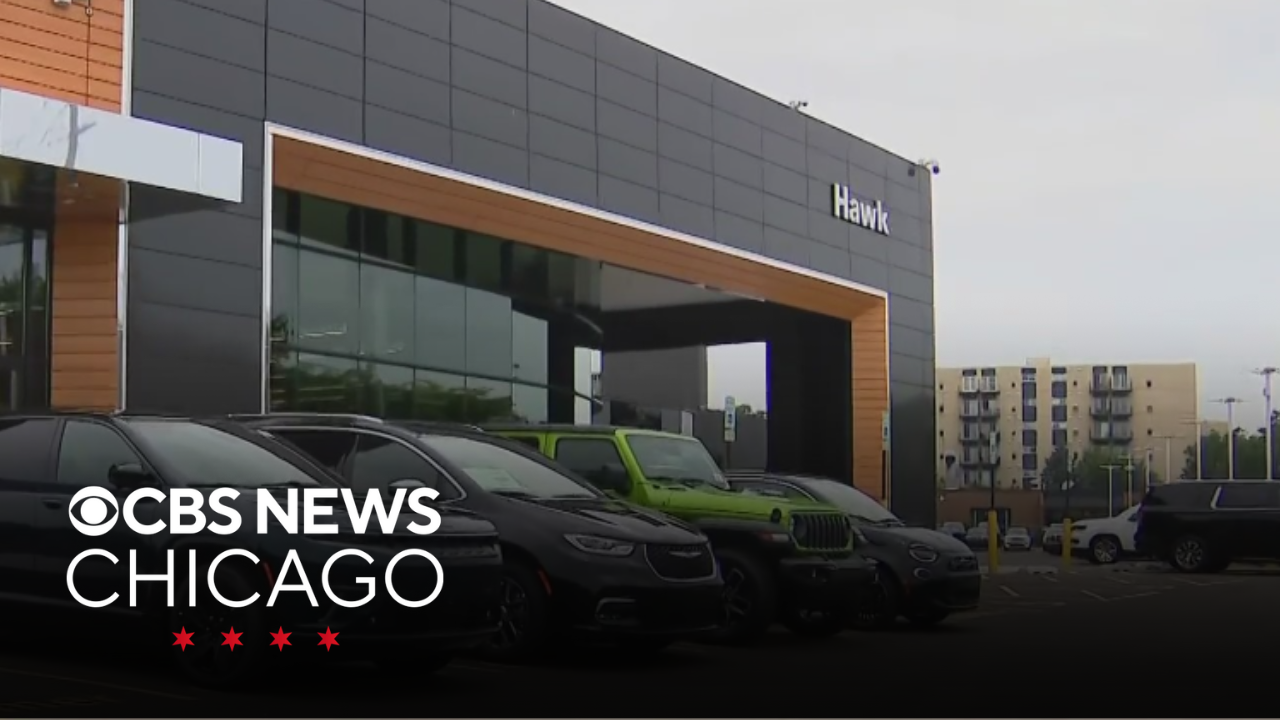End of electric vehicle tax credits dictated in "big, beautiful bill" will have consequences for consumers, dealers
The passing of the Trump administration's "big, beautiful bill" means major cuts to clean energy and tax credits — including an end to big breaks on electric vehicles.
In the Chicago area and around the country, dealership owners are preparing for the cuts to go into effect in just a couple of months. The owners said they are already seeing changes in the market.
The federal tax credits, which are meant to get drivers behind the wheel of electric cars, end Sept. 30. The credits cut up to $7,500 off the price of a new electric car, and up to $4,000 off to a used car.
"The $7,500 incentive is fully 20% the price of this vehicle," said John Crane, who runs Hawk Auto Group, as he pointed out a Fiat 500E for sale on one of his lots.
The end of the federal tax credits for electric car purchases is a consequence of the massive tax and spending cut bill passed last week. Crane said the electric vehicles currently in stock will sell out, and then dealerships after that will only get supply to the tune of a handful a month.
"We're not going to order as many as we currently have in stock," he said.
Crane added that a $7,500 credit going away also amounts to a cost of about $200 more a month for the average consumer.
He said the result of all this is sure to be that a lot of people just won't buy electric cars anymore.
"The barrier to entry is going to be higher, and less people will be willing to take a chance," he said.
Hawk Auto Group, which has dealerships across Illinois, said the end of the tax credit will mean changes for them too.
"The $7,500 credit is beyond the scope of what a dealership could afford to make up," Crane said.
Meanwhile, the change is already making waves in the auto industry — to the point where some manufacturers aren't making as many electric cars.
"Nissan has pushed out production for some of their electric vehicles," Crane said, "and you know, even at the high end, Maserati was planning on going all-electric, and now they're not going to do that at all."
It is not just a couple of automakers reassessing plans for electric vehicles.
"Nearly all automakers have reassessed their product portfolio and are pushing their new entrants into electric vehicle segments further out, so they have more time to adjust what the real market is going to end up being without the incentive," said Crane.
John Truckenbrod is founder of Chicago-based EV Energy Group. He offered some perspective on the situation.
"Globally this year, one out of four cars sold will be electric," Truckenbrod said. "Now, the United States isn't necessarily the leader in electric vehicles."
The EV Energy Group installs different types of chargers — residential and commercial. He said the end to the tax credit may slow down electric vehicle purchases, but interest is not going anywhere.
"It will probably slow the market down, but it's not going to end the market," Truckenbrod said.
But what does the end to the tax credit mean for those who are shopping for a car. Regardless of whether interest is maintained, consumers may indeed see fewer all-electric vehicles on dealership lots.
"If price goes up, we expect sales to go down. It's very simple," said Crane. "So that means we would have to stock a few less, and we'll probably be working more off an order-based system for electric vehicles in the future."
Again, the federal tax credits go away at the end of September — not the end of the year.




